 Petzlover
Petzlover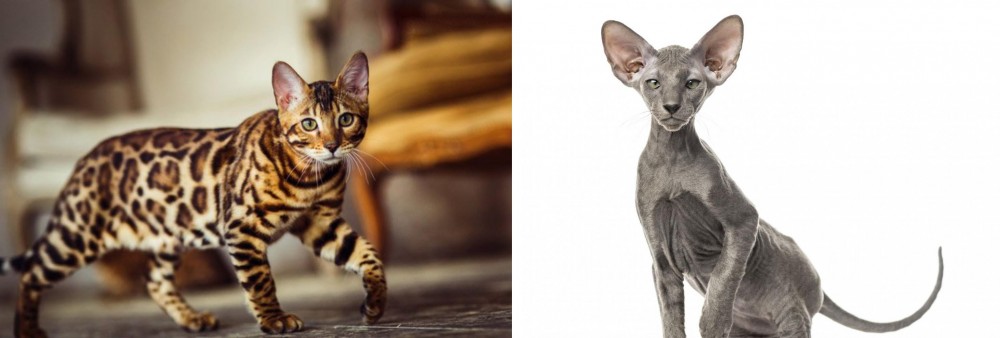 Cheetoh is originated from United States but Peterbald is originated from Russia. Both Cheetoh and Peterbald are having almost same weight. Both Cheetoh and Peterbald has almost same life span. Both Cheetoh and Peterbald has same litter size. Cheetoh requires Low Maintenance. But Peterbald requires Moderate Maintenance
Cheetoh is originated from United States but Peterbald is originated from Russia. Both Cheetoh and Peterbald are having almost same weight. Both Cheetoh and Peterbald has almost same life span. Both Cheetoh and Peterbald has same litter size. Cheetoh requires Low Maintenance. But Peterbald requires Moderate Maintenance
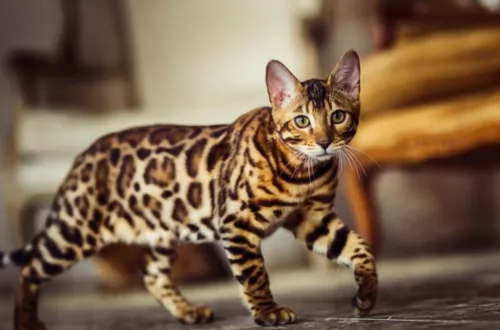 The Cheetoh is a beautiful cat whose parent breeds are the Ocicat and the Bengal.
The Cheetoh is a beautiful cat whose parent breeds are the Ocicat and the Bengal.
It was in 2001 that these two breeds were crossed by breeder Carol Drymon. Drymon was wanting to develop a new cat that would have characteristics similar to that of a wild cat but that would behave like a domesticated cat.
The Cheetoh became a recognized and registered breed with the United Feline Organization in November of 2004.
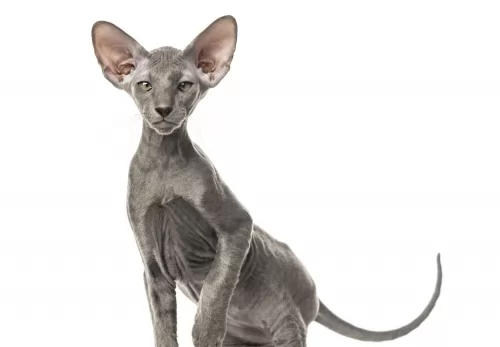 As a newer and rare cat breed, the Peterbald cat’s history is somewhat limited.
As a newer and rare cat breed, the Peterbald cat’s history is somewhat limited.
The breed was first developed in 1994, when a Russian breeder named Olga S. Mironova crossed an Oriental Shorthair cat with a Don Sphynx cat. This cat was to be known as the Peterbald.
The Peterbald cat is recognized by the Cat Fanciers Association. It was also accepted by The International Cat Association in 1997.
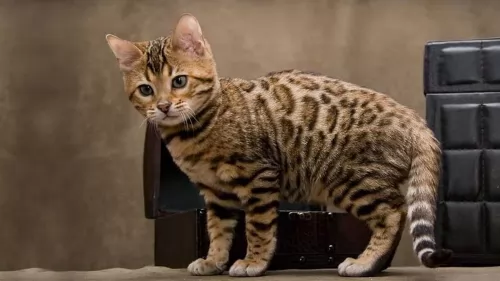 For a housecat, the Cheetoh is a muscular and large breed. In fact, this is one of the largest breeds of all the domesticated cats, with males being bigger than females. They can weigh anything between 7 and 10kg.
For a housecat, the Cheetoh is a muscular and large breed. In fact, this is one of the largest breeds of all the domesticated cats, with males being bigger than females. They can weigh anything between 7 and 10kg.
People want to own an animal that looks like a wild cat and the Cheetoh looks like a Cheetah. The coat of the cat can be several different colors and can be in different patterns with spots and stripes. He gets the spots from both the parent cats - the Ocicat and the Bengal. He definitely getd the longer legs from the Ocicat.
The purpose of the Cheetoh breeding program was to create an exotic, intelligent cat with a wild look and that would also be larger than your regular domestic cat. You could say it's the cats wonderfully soft, a velvety coat that makes it such an attractive cat.
Also, another notable feature with the cat is the way it walks - it looks as though it is stalking and prowling.
The cats are bred in 6 colors referred to as the black- or brown-spotted sienna, the black-spotted smoke the black- or brown-spotted gold, the black-spotted silver and the gold-spotted.
Your fascinating Cheetoh is a fun-loving cat, being playful and energetic and he will require a large yard and require being exercised.
They’re gentle cats but are talkative, being quietly friendly and social.
They make great family pets. They become devoted to their human family, being loyal and companionable. He is an affectionate, loving cat and his intelligence allows him to learn some simple commands and tricks.
He is the kind of cat that will do well in a family with kids and pets as he loves playfulness and fun, but he also wants to receive lots of love and attention.
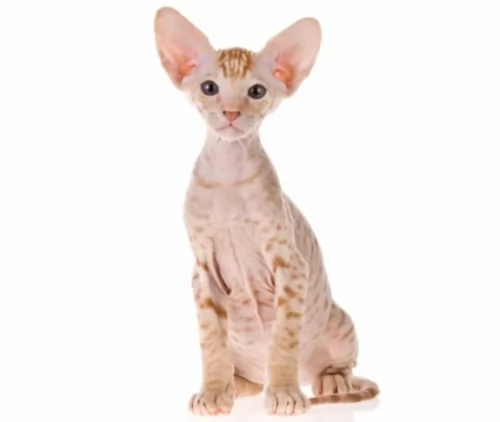 Looking a little bit futuristic, with a long, narrow head, almond-shaped eyes and large, pointed ears, the medium-sized, slimly built Peterbald cat can weigh between 3 and 6kg and is essentially a hairless cat.
Looking a little bit futuristic, with a long, narrow head, almond-shaped eyes and large, pointed ears, the medium-sized, slimly built Peterbald cat can weigh between 3 and 6kg and is essentially a hairless cat.
Although Peterbalds are considered a cat breed that are essentially hairless, not all of them are hairless as there are some that have a very short coat. There are some that are born with quite a bit of hair but they lose this.
In fact, their coat color as well as certain markings can be in various shades and patterns.
Peterbalds are easy-going, social cats with a sweet nature. They are affectionate towards their human companions and are quite vocal too, liking to talk to their owners. They are active and playful and enjoy playing with children and even other pets in the home.
In fact, they are adaptable cats and will slot into different home environments and lifestyles. The hairless variety is best as an indoor cat and this is why they suit living in apartments as well.
They are independent and intelligent, and people who have owned them say their pets often behave like a dog, wanting to be involved in their human's activities.
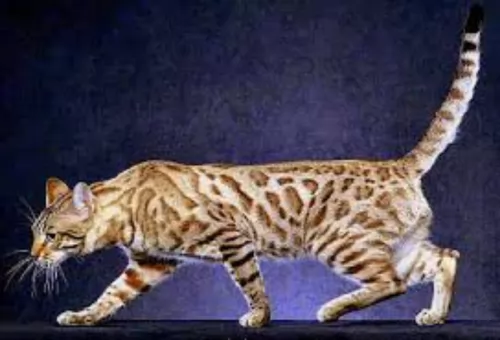 Cheetohs are a wonderful breed of cat and will love a busy household of adult humans, kids, and other pets.
Cheetohs are a wonderful breed of cat and will love a busy household of adult humans, kids, and other pets.
Remember that because of their wild side they have a high prey instinct and might like the idea of going after your small pets such as fish and birds.
Intelligent and playful you will need to keep your Cheetoh entertained and exercised with both mentally and physically stimulating puzzle-type games. One thing is for sure, with a Cheetoh in your home, you're never going to have a dull moment.
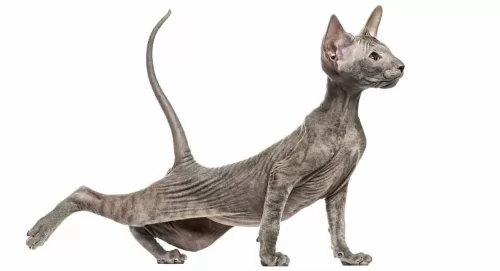 These Peterbalds are very intelligent cats and also very affectionate with their human owners. They are always up for a game and are playful and social.
These Peterbalds are very intelligent cats and also very affectionate with their human owners. They are always up for a game and are playful and social.
While they make excellent family pets and companions, one just has to take special precautions with the hairless variety and ensure that they don't become too hot or too cold.
They’re balanced in nature and adapt to the different human personalities in the household as long as its human owners are kind and respectful towards animals. With the right level of love, kindness and respect, they become ideal companions.
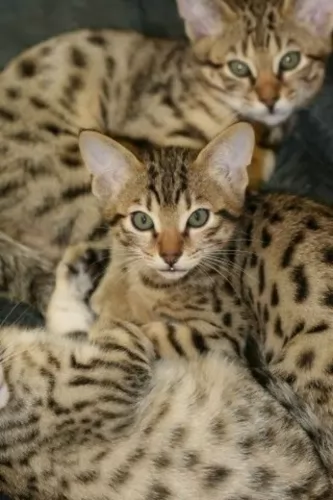 Whenever you buy a pet, particularly an exotic type of pet where you’ve spent a lot of money, make sure to check out potential health issues from the breeders.
Whenever you buy a pet, particularly an exotic type of pet where you’ve spent a lot of money, make sure to check out potential health issues from the breeders.
Always make sure to buy your cat from a reputable source to avoid health issues that could drastically shorten your Cheetoh cat’s life.
As with all cats, there are potential genetic problems in their ancestry that might reveal itself in your cat.
Certainly, if you suspect something is wrong, get your cat to the vet immediately.
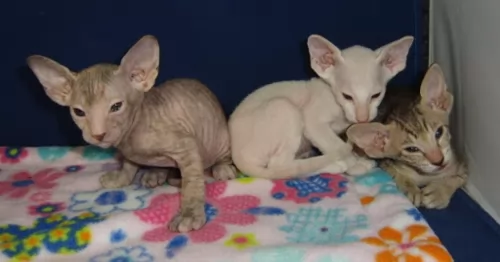 One of the more obvious things to watch out for with this particular cat is his hairlessness. This means he is more susceptible to the cold as well as to the heat. If he is outdoors, you have to be careful with his skin as it could get burned. Rough play with children could also cause scratching of the sensitive skin.
One of the more obvious things to watch out for with this particular cat is his hairlessness. This means he is more susceptible to the cold as well as to the heat. If he is outdoors, you have to be careful with his skin as it could get burned. Rough play with children could also cause scratching of the sensitive skin.
This particular cat is a fairly new breed and so there are few genetically inherited problems to be careful of.
Their large ears might prove to be a problem, and you will need to check the interiors and see that they remain clean. Also, trim his claws. If you fear that you could hurt your cat while attempting to groom him, rather take him along to professional, reputable pet groomers or have your vet do these grooming processes for you.
Whenever your Peterbald is sick you will need to get him to the vet. As it is, as a kitten, he will need to be taken to the vet to have his regular vaccines to protect him from some of the deadly cat diseases there are.
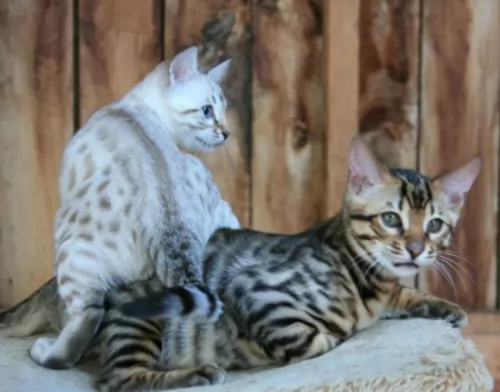 Although the Cheetoh is considered to be a hypoallergenic cat, no cat is really so, but nonetheless the coat is lovely and velvety and is shiny and short, being low shedding as well.
Although the Cheetoh is considered to be a hypoallergenic cat, no cat is really so, but nonetheless the coat is lovely and velvety and is shiny and short, being low shedding as well.
He will need lots of exercise, but luckily with his dog-like attributes, he can be taught to walk on a leash,
Ensure your cat has a nice dry, warm sleeping area.
These are energetic cats and he will need a complete commercially manufactured cat food that is high in protein, after all this is a carnivore and they require meaty diets.
If in any kind of doubt as to what to feed your Cheetoh, speak with your veterinarian if you have any concerns.
Make sure that your cat is never without a constant supply of fresh, cool water. A water fountain, with moving water, always encourages water drinking with cats.
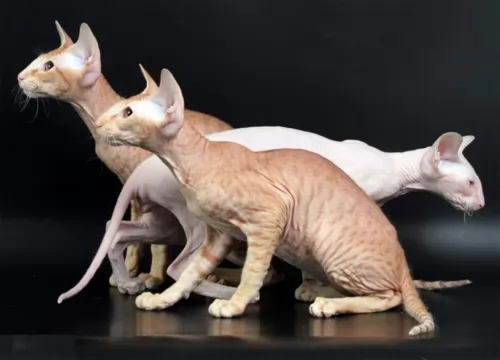 The Peterbald cat with its little or no hair is considered to be a low-maintenance cat. Their owners don’t have to worry about excessive shedding. Bathing these cats is important so that oils don't build up and cause skin irritation.
The Peterbald cat with its little or no hair is considered to be a low-maintenance cat. Their owners don’t have to worry about excessive shedding. Bathing these cats is important so that oils don't build up and cause skin irritation.
These cats are also best as indoor cats, but then again, some gentle sunshine on the skin will do him the world of good, and he loves the feel of the warm sun.
There are some Peterbald cat owners who gently bath their cats, sometimes once a week to get rid of the oil on the skin. If it isn’t possible to bath your cat, check out at your local vet as you do get special wipes for these cats that are effective in removing dirt and oil.
Also, speak to your vet about skincare and the possibility of moisturizing creams specially made for these cats and which are gentle and non-toxic.
This is a slim, athletic cat, and like all other cats, you have to be careful about weight issues. Any amount of weight with this cat can bring on a host of health issues such as extra pressure on the joints, not to mention other weight-related diseases such as diabetes and heart disease.